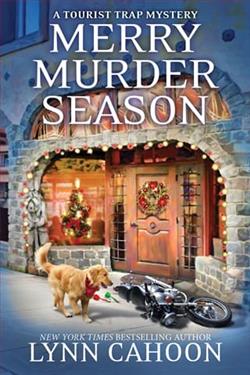Page 46 of One Step Too Far
Luciana heads closer to the original hiking path. Releases a second puff. Corrects her position slightly, till the orange powder is drifting directly toward her.
“Direction?” she asks Bob.
“Wind is coming from the northwest.”
“Have our start point on the map?”
“X marks the spot.”
“All right. Behind me. Spread out. Make sure you’re tracking your own positions. Are we ready?”
Martin’s face shutters, while beside me Scott trembles so hard, I grab his hand. The only one of us who appears happy is Daisy, who is one hundred percent fixated on her handler’s face, body tense, ears forward.
“Time to work,” Luciana announces to her eager mutt. Then to the rest of us: “The command word for cadaver searches can be tricky. Search, seek, find it, are too general. Adding corpse or dead person too gruesome. So one of my teammates came up with something a little different, based on a code word her daughter used for her menstrual cycle—another training tool is used tampons. Now that the rest of you are good and freaked out, ready, Daisy? Time to work. Find Fredericka.”
We are totally surprised.
Daisy bolts forward, and just like that, we’re on the hunt for human remains.
CHAPTER 16
True to Luciana’s prediction, Daisy is anywhere and everywhere. Sniffing, running, sniffing some more. Scott and I both have to leap back as she comes barreling at us. Then it’s Neil and Miggy’s turn to scramble out of the way. We’re all so fixated on the dog’s explosion of energy and effort, we quickly forget our own tasks.
“Eyes,” Luciana snaps, and we belatedly jump to it. Luciana hasn’t moved yet, just tracks her dog with her gaze. Bob has his map and his compass and looks as eager as the dog to find the trail.
Scott and I retreat, trying to put more space between us and the crazy canine. “Natural barriers,” I mutter. “Places that would pool scent.”
This seems to galvanize Scott, and we start moving in unison. Neil and Miggy have headed back toward the main path, so we track in the other direction, eyes on the terrain. I try to think like a wafting fragrance. Where would I go? Where would I linger? But in this flat terrain, with its collection of skinny, half-dead pine trees, I’m having a tough time identifying any kind of collection point. I move on to searching for random spots of color—say, a scrap of fabric, as Luciana mentioned. Mostly I see muted neutrals. Reddish brown dirt. Silvery gray tree trunks. Small patches of green growth. The woods here have a rich, loamy smell. Not the glacier crispness of our campsite, but something earthier. I wonder how it must register for Daisy, and her exquisite nose that is at least ten thousand times better than ours.
Scott has drifted farther away from me. He is looking down so hard, he snags a strap of his backpack on a broken branch and is momentarily caught. I cross over to help.
“Doing okay?” I ask him.
“Sure,” he says in a tone that indicates he’s not okay at all.
The others have become distant figures, people we can hear more than see. I loosen the strap, then wordlessly remove his water bottle from its side pocket and hand it to him. Whether he knows it or not, he’s sweating profusely.
“How’s the chest?”
“I’ll live.” He rubs it self-consciously.
“Your face is flushed. Sure you’re feeling all right?”
He unscrews the cap of his flask. Drinks deeply. Replaces it. “No.”
“Present injury or past regrets?”
He flashes a smile. “Wouldn’t I like to know.”
“If you need to go back to camp, I’ll go with you. I don’t mind.”
He shakes his head. “I can’t,” he says quietly, and I think I understand.
“So how shall we approach this? You want to monitor our location, or be on the lookout for signs of human passage?”
“You mean stare at the map versus look for my friend’s body?”
“This can’t be easy.”















